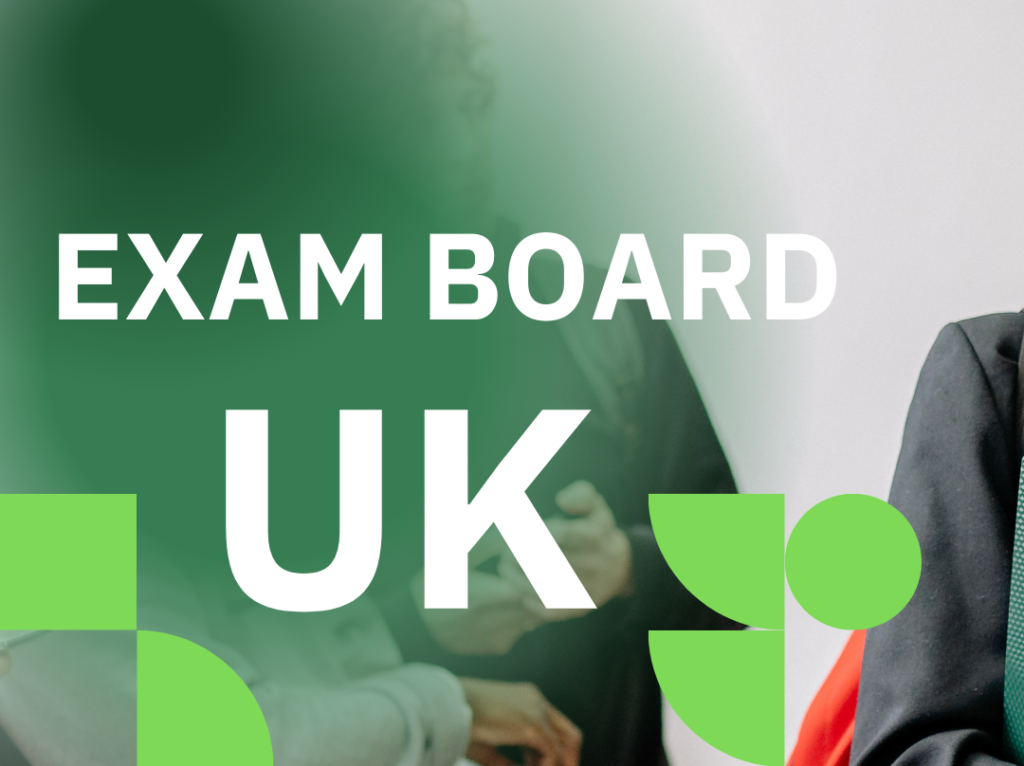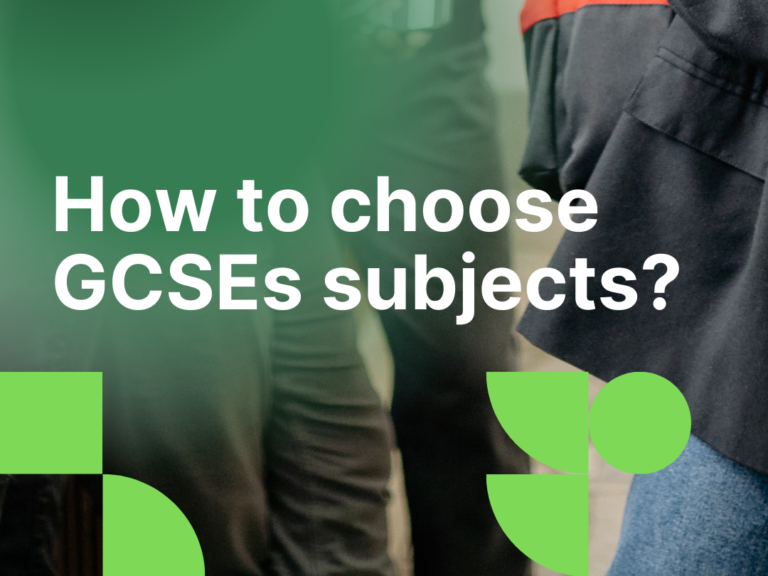
Table of Contents
Introduction to exam boards in UK
In the UK, exam boards are responsible for setting and awarding different levels of subject-specific examinations, such as GCSEs and A-Levels. They both develop the curriculum for these qualifications and assess students’ knowledge and skills through rigorous examinations. Below is an introduction to some of the main exam boards in the UK
4 different exam boards

AQA (Assessment and Qualifications Alliance)
The AQA is the largest of the exam boards in the UK. AQA provides a wide range of GCSEs, A-Levels, technical qualifications, and functional skills qualifications. It is known for its teacher-led approach to designing qualifications.
Pearson Edexcel
Pearson Edexcel offers a broad range of qualifications from primary levels to post-16 education. This includes GCSEs, A-Levels, BTECs, and other vocational and technical qualifications. Pearson Edexcel is part of Pearson, the world’s largest education company.
OCR (Oxford, Cambridge and RSA Examinations)
OCR offers GCSEs, A-Levels, Cambridge Nationals, functional skills and other professional qualifications. It has a reputation for robust and challenging assessments that equip students with useful skills for the future.
WJEC (Welsh Joint Education Committee)
The WJEC caters to students in Wales but also offers qualifications across England, Northern Ireland, and internationally. WJEC offers a full suite of qualifications, including GCSE and A-Levels. WJEC’s counterpart in England is known as Eduqas.
Each exam board has different specifications, resources, and past papers, but all are regulated by the Office of Qualifications and Examinations Regulation (Ofqual)
Top 7 exam board Q&A
Here are ten frequently asked questions and answers about exam boards in the UK.
Q1 : How are exam boards different from each other?
- AQA (Assessment and Qualifications Alliance): AQA exams usually have a straightforward and structured approach to questions. They often give clearer instructions and tend to exert more control over what the student should focus on in their answers. As a result, they may be more suited to students who prefer a direct method of examination.
- Edexcel (Education & Excel): Edexcel, which is a part of Pearson, is known for a structured question approach but with a focus on real-life contexts. They often present questions in a context-based or problem-solving scenario, which encourages students to apply their understanding to practical situations.
- OCR (Oxford, Cambridge and RSA Examinations): OCR tends to make more use of essay-style questions to assess a student’s understanding, promoting detailed, long-form answers. This may appeal to students who prefer demonstrating their understanding in a comprehensive, exploratory manner.
- WJEC (Welsh Joint Education Committee) / Eduqas: WJEC or Eduqas tend to focus on the application of knowledge and understanding rather than just recall of facts.
Q2 : What is the most popular exam board in the UK?
The Assessment and Qualifications Alliance (AQA) is currently the largest exam board in the UK. It provides a variety of qualifications at GCSE, AS and A-Level and is responsible for a significant portion of all the exams sat in England, Wales and Northern Ireland. The AQA offers a broad range of subjects and has a reputation for providing comprehensive support resources to students and teachers.
Q3 : What is the hardest exam board in the UK?
The difficulty of exam boards is largely subjective and depends on the individual student’s learning style, the teaching style of their school or teacher, and the specific subject matter. However, it’s important to note that all exam boards in the UK are regulated by Ofqual (The Office of Qualifications and Examinations Regulation) to ensure a consistent standard of education and assessment across the country.
That being said, some students and teachers might perceive certain boards as more challenging due to their style of examination or syllabus content. For instance, some believe that OCR and Edexcel are more challenging than others due to their analytical and context-based questioning style.
Others may argue that the AQA requires a deeper understanding of subjects due to the structured manner of their question papers.
So, while some exam boards might seem harder to some students, they are all designed to accurately evaluate your knowledge and understanding of the subject, conforming to a nationally agreed standard. The ‘hardest’ exam board can depend significantly on your individual learning style and preparedness for the exams.
Q4 : What is the easiest exam board for in the UK?
It is important to clarify that the concept of an “easiest” exam board is quite subjective. The difficulty or ease of a particular exam board can greatly depend on individual student’s learning preferences, strengths, the subject matter, and how well the material is taught.
Some students might find certain exam boards “easier” if the structure and style of the examination paper, or the nature of the questioning, align more closely with their learning style and study preparation.
It’s advised to not base your choice on which exam board is perceived as the easiest, but rather to investigate which one suits your learning style and subject strengths best, and then make an informed decision from there. Remember, it is the quality of one’s study and preparation that will ultimately lead to success, not necessarily the ‘ease’ of the exam board.
Q5 : Can student choose their own exam board?
Generally, it’s not the students who choose their exam boards but rather their school or college. The school will opt for a specific exam board’s syllabus for each subject, primarily based on the teachers’ preferences and experiences. This selection typically considers which curriculum or exam style best aligns with the teaching style and the students’ abilities at that school.
However, for private candidates (students who choose to study independently, either out-of-school or as homeschoolers), they have the freedom to select the exam board for their qualifications as long as the required coursework or practical assessments are completed and the exams are taken at an approved examination center.
Therefore, while students at school don’t usually have a say in the choice of exam board for their subjects, they can, of course, express their views or preferences to their teachers or school authorities.
Q6 : Are the qualifications offered by all exam boards considered equivalent?
All qualifications offered by recognized exam boards in the UK are considered equivalent in terms of their level and size, as they must adhere to the same standards enforced by Ofqual – the Office of Qualifications and Examinations Regulation. This includes qualifications such as GCSEs, AS levels, A levels among others. This ensures a standardized education level across the country, allowing universities, colleges, and employers to regard all qualifications as equal.
However, the perception of difficulty may differ between students depending on their individual learning styles, strengths, and the teaching methods used in their respective schools. Therefore, it’s always recommended to choose the best fit for each student and not the perceived ‘easier’ board.
Q7 : What resources student can have to prepare for the exam?
Certainly, there are a variety of resources UK students can utilize to aid their exam preparation. Below are some general resources, alongside subject-specific ones:
- Revision Guides and Workbooks: Publishers such as CGP, Letts, and Collins produce subject-specific guides and workbooks for all levels of study. These books typically provide an overview of the course content, examples of exam questions, and suggested strategies for exam success.
- Past Papers and Mark Schemes: Past papers are vital for your exam preparation as they help familiarize you with the exam style and timing. You can usually find these on the exam boards’ official websites. The mark scheme can help you understand what examiners look for in answers.
- Official Exam Board Websites: Websites like AQA, Edexcel, OCR, WJEC typically provide exam specifications, key dates, and sample exam papers.
- Online Learning Platforms: Websites like BBC Bitesize, GCSE Pod, Seneca Learning, and Khan Academy provide courses for different levels and subjects, including video lectures, interactive quizzes, and practice questions.
- YouTube Channels: Channels like FreeScienceLessons, Mr. Bruff (English), Primrose Kitten (Science), HegartyMaths are tailored for UK exams offering free quality lessons and tips for many subjects.
- Tutoring: Many students find one-to-one or small group tutoring useful to gain a deeper understanding of complex topics.
- Peer Study Groups: Collaborating with classmates to revise can be productive for some students, providing the opportunity to test one another and clarify confusing points.
- Teachers and School Resources: Teachers usually have insight into your individual learning style and can provide targeted resources and advice. Schools may also offer access to educational platforms or libraries with textbooks and resources.
- Revision Apps: Apps like Quizlet, Anki, Gojimo and The BrainScape are useful for memorizing key terms, dates, and other factual information.
Remember, it’s important to establish a steady study routine and to understand what type of resources work best for you. Reviewing the material, doing practice papers, and seeking help on challenging topics can greatly improve your preparation for exams.

